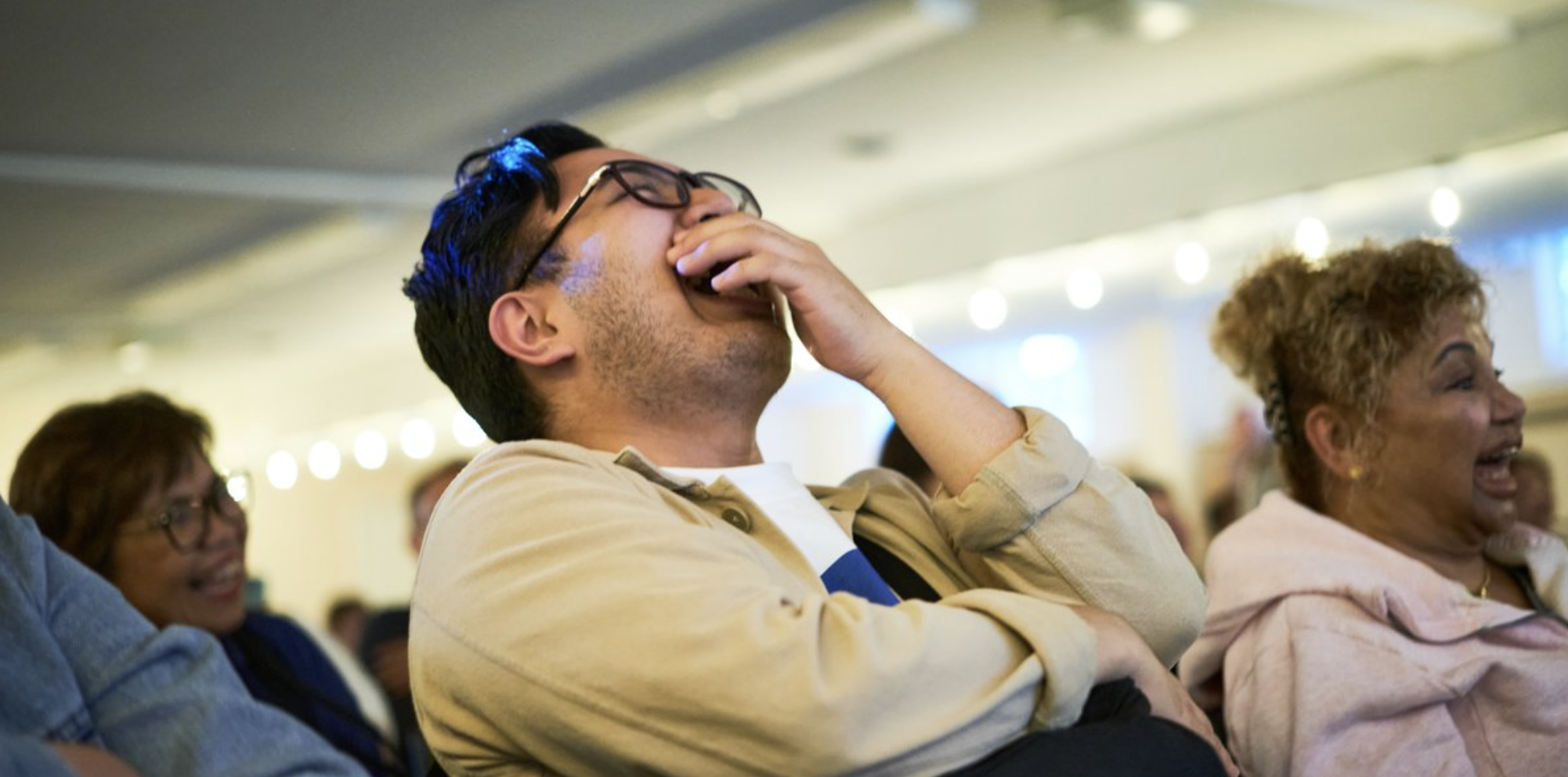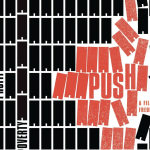BURNABY, BC — If the best metric for judging a comedy show is the amount of laughter, then Stand Up for Jesus was an undeniable success. It also might hold a key to understanding what constitutes Catholic comedy.
Held at St. Francis de Sales Church in Burnaby, the recent comedy night was the result of months of work by organizer Jo-Anne Duchscherer and her budding group of six amateur stand-up comics.
“If you have rotten cabbage, please do not throw them!” the ministry’s Chaplain Father Mark McGuckin told the approximately 80 attendees. “This is not Elizabethan times — this is not the Globe theatre.”
He added quickly, “We do, however, accept donations of perishable items!”
All six comedians started taking stand-up lessons last year, and apart from a trial run in 2025, the May 30 event marked their inaugural public performance.
The comedy ministry was initially pitched to pastor Father Mark McGuckin when he was at Duchscherer’s parish, St. Joseph in Port Moody. The venture received episcopal approval from Archbishop J. Michael Miller last spring.
In an interview after the show, Duchscherer told The B.C. Catholic the goal of the ministry is simple: “To raise up holy fools for Jesus.” The holy fool is a medieval archetype popular in Eastern Christianity for embodying a closeness to God despite an unserious, often silly, disposition.
Duchscherer said her Catholic faith has always inspired her to embrace joy, which for her involves performing live comedy. She has been taking stand-up comedy classes and performing for over a decade.
Asked why she proposed the ministry, she simply quoted a line from St. Thomas Aquinas’ Summa Theologiae: “Relaxation of the mind from work consists in playful words or deeds.”
Anyone is capable of writing good jokes, says Duchscherer, and she tells her students to look for the Catholic stories in their lives. “We’ll take those stories and break the funny out of them.”
At Stand Up for Jesus, the stories were as wide-ranging as the performing comedians, who represented a diverse generational cross-section of Catholic life.
Valerie Murdocco offered jokes about her 32 years of marriage, including a tongue-in-cheek explanation for her conversion to Catholicism from her strait-laced Protestant upbringing: “Gambling, wine and dancing? I’m in!” she said to appreciative laughter.
A trio of younger Catholics, Kenneth Haggerty, Emily Robichaud and Daniel Williams, joked about young life in the Church and the ills of millennial and Gen Z life in general.
Robichaud, a crowd favourite, drew considerable laughs after a series of jokes about joining the CWL as a young woman.
The event was a clear success, and other pastors are considering offering Stand Up for Jesus in their parishes. Father Lucio Choi attended from Holy Trinity in North Vancouver, interested in the prospect of bringing the comedy ministry to his parish. A room full of laughter and community is hard to resist, he said, even for non-Catholics.
“Laughter brings people together,” Father Choi told The B.C. Catholic. “Catholics like to laugh!”
Regardless of whether the ministry eventually finds its way into Holy Trinity, Father Choi admits he’s intrigued by the prospect of learning stand-up comedy himself. “Instead of homiletics class, I’ll learn to do this,” he joked.
Attendees had the opportunity to sign up at the event for the next class with Duchscherer. Those interested in learning the ins and outs of Catholic comedy can also contact Stand Up for Jesus at info@SUFJ.ca for more information or to register.
The quest for ‘Catholic comedy’
The very concept of “Catholic comedy” invites a lot of questions. What is Catholic comedy? Who can do it? Does any Catholic doing stand-up comedy become a “Catholic comedian?” And is foul language allowed?
Any attempt to find answers is complicated because comedians, politicians and public figures have often used Catholicism as a branding device.
Over a decade ago, Jim Gaffigan, of My Dad is Fat fame, used his cultural Catholicism to significant effect in building his brand. Looking at him now, it’s likely many of his fans would be disappointed. Gaffigan was essentially a so-called “clean comic” — no swearing, no grotesque sexual jokes — but in recent years, it has become clear that his cultural Catholic posturing was more culture than Catholic.
That’s not to say there are no Catholic comedians. Late night TV host Stephen Colbert, known for flirting with far-left political ideas, is an outspoken Catholic who teaches Sunday school and has openly challenged popular atheists on his shows about their stance on religion and God.
Outside the mainstream, there is also a growing space for conservative voices. Two-time Pints with Aquinas guest and rising comedic star James Donald Forbes-McCann may sometimes push the boundaries with his humour, but the sincerity with which he speaks about his faith is evident.
One of his best routines involves quoting biblical language about sex in the context of an office team-building exercise. The bit tugs at sensibilities and could be viewed as offensive by some, but it undeniably appeals to a growing audience that includes many Catholics. Does that make it “Catholic comedy”?
For his part, Forbes-McCann would admit to occasionally crossing the line in his search for the funny, but it’s hard to say whether those crossed lines make his comedy any more or less Catholic. Missing the mark is, after all, part of human striving for God. What’s more, a popular notion of comedy among secular adherents such as Joe Rogan or Dave Chappelle is that humour should be subversive, edgy, even offensive. Jordan Peterson believes a good comedian walks the razor’s edge of acceptability.
So while some “Catholic comedy” might not be family-friendly entertainment, perhaps it needn’t be. Just as children go to “children’s liturgy,” other divisions of adult and child spaces within Catholicism shouldn’t be controversial.
Perhaps, with regard to so-called Catholic comedy, the adage “I’ll know it when I see it” is the best interpretive lens available. That and “different strokes for different folks.”
With that in mind, Stand Up for Jesus at St. Francis de Sales was undeniably Catholic comedy. I have seen it, and I know. It was also family-friendly and clean, something that even if not necessary was well appreciated by those tired of the harsh, often vulgar performances routinely found in the secular comedy world.
For her part, Duchscherer offers a more inspiring vision: “The best jokes are based on truth,” she told The B.C. Catholic.
Truth is certainly a defining feature of Catholic comedy, or any Catholic endeavour for that matter. And even though all comedians start with observations of the world, it’s the direction they travel once the observation is complete that makes the difference between cynically deconstructive and wholesomely generative comedy.




